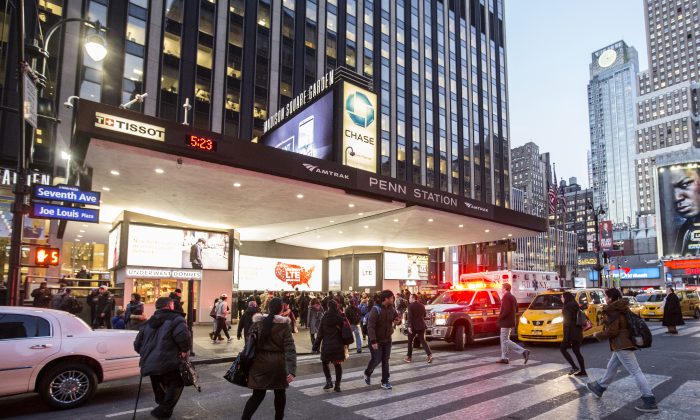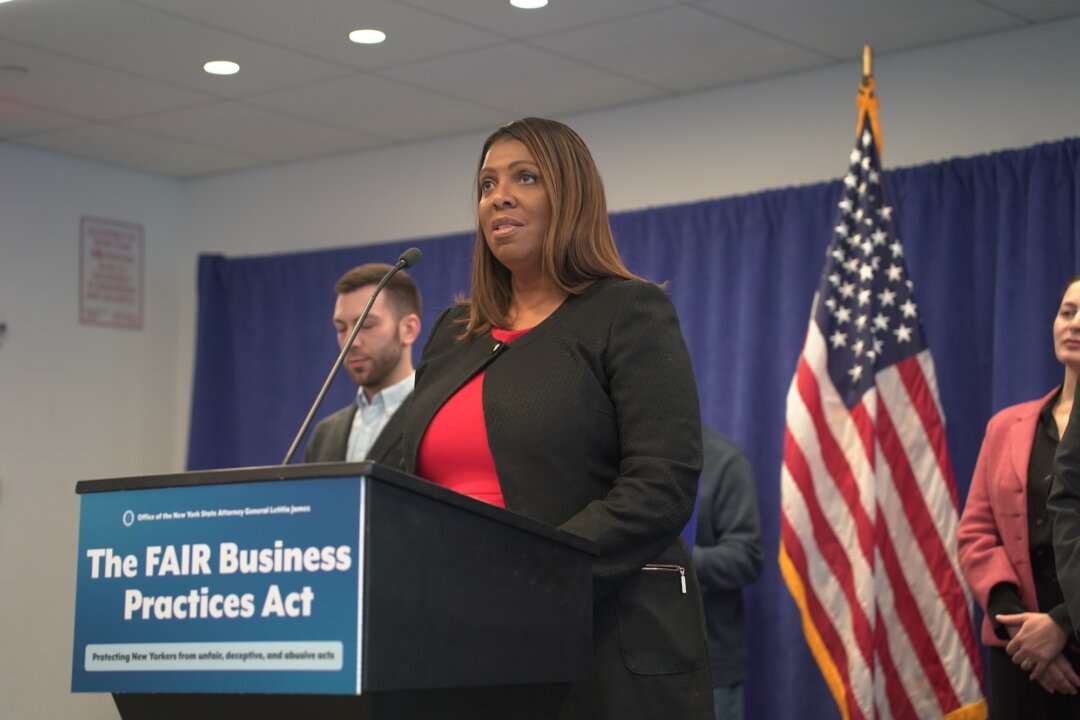President Donald Trump’s decision to take a hammer to the global trade system is the realization of a years-long dream for the often-ignored protectionist wing of the Republican Party. But what if it fails, and fails miserably?
Few have more at stake in this political project than Oren Cass, the founder of the right-leaning think tank American Compass and an ally of top administration officials like Vice President JD Vance and Secretary of State Marco Rubio.
Cass is a prominent defender of Trump’s tariff regime who hascompared the “Liberation Day” tariff announcement to D-Day: a stunning, opening assault in a lengthy campaign against forces that he says have hollowed out the American economy. But he’s also been critical of Trump’s efforts to convince the public and businesses the new trade barriers will be a success, particularly as markets took an ugly dive. On Wednesday, amid continued market turmoil, Trump announced he was pausing some of the tariffs for 90 days.
“I don’t think there is a problem with doing things that have costs,” Cass said in an interview with POLITICO Magazine Tuesday night, just hours before what the White House dubbed “Liberation Day” was set to begin. “The problem is with failing to properly communicate the nexus between the problem to be solved and costs to be borne.”
Cass’ attacks on free trade — along with his skepticism of sweeping tax cuts — have put him at odds with other conservative groups that have long held sway over the GOP’s agenda.
And he is well aware that should Trump’s haphazard rollout of new tariffs ultimately lead to economic calamity, his faction of the party will be dealt a huge defeat.
“A plan done poorly that imposes politically unsustainable costs, and therefore loses favor with the public, obviously undermines the long-term goal of effecting this kind of change,” he said.
This conversation has been edited for length and clarity.
What have you made of the rollout so far?
On one hand I've been incredibly encouraged by the way they've taken this issue and put it front and center. The push toward fairly unfettered globalization over the past generation obviously has not been successful, but reversing that actually does entail some short-term costs and — for the most part — we tend to have political leaders who are not willing to consider that. So, having an administration that can understand the problem, wants to prioritize doing something about it, and is talking about it quite bluntly, is fantastic.
On the other hand, I think with the specifics of the policies they’ve rolled out, they've done a few things that impose more costs than are necessary. When you have a strategy that’s going to impose some upfront costs before you get to the benefits, it's really important to both substantively and politically to do what you can to minimize those costs — and make sure you're really going to deliver fully on the benefits.
The abruptness of all tariffs going into effect immediately, the uncertainty about what is temporary versus permanent and the lack of clarity about the long-term vision — what they actually see as the end stage and how to get from here to there — are all real challenges that pose real risks to the project.
To that point, even with negotiations there is still uncertainty around where things will land — including with key allies. What are you anticipating in terms of market reaction the longer that continues?
I worry less about the short-run market reaction and more about the long-term decisions that both companies and countries are making in response.
There are two types of actions being taken here, as I see it. One is permanent tariffs that are intended to change incentives for companies [so that] they really face different costs in the future and are more likely to invest and produce in the United States.
But if you want to induce companies to make major capital investments that take years — and that only makes sense if they'll be profitable for many more years — they need to know what the policies are going to be for the long run. A lack of certainty there just paralyzes them. You can’t get the benefits unless they actually believe this is going to be a new, long-term landscape.
The second type of tariff the administration seems to be using are what I would call “negotiating tariffs.” Those are intended to be temporary and essentially provide leverage over other countries that we want to see behave differently. It’s OK that the policy is temporary — the point of those tariffs isn’t to shift investment behavior so much as it is to force other countries to change their policies — but I think there is a lot of uncertainty around what changes they are actually supposed to make.
You have uncertainty within each of those categories, and then you have uncertainty between them. There have been conflicting messages from the administration over what is really temporary.
Such as?
The best example of this is with China. They were already hitting China with the highest tariffs before this new round of retaliatory tariff, which kicks the total above 100 percent.
Sixty percent tariffs on China were actually something that Trump ran on. Revoking China’s trade relation status was something that Trump ran on. That suggested — even though some of the China tariffs are being deployed in that reciprocal category — that there isn't really any openness to a deal here.
In the first term, if you look at the kind of deal the administration was pursuing with China, it was very transactional. “We want you to commit to buying more soybeans,” and so forth. This time around what the administration is focused on is actually: “We want balanced trade. We want free markets.” And one of the key conditions — particularly directed at partners like Canada and Mexico — is that we want you to join us in keeping China out.
That would suggest that the endgame with China is not to strike a deal and move forward bravely with globalization. It's that we are decoupling.
And yet, at the same time, you see members of the administration say: “We're waiting for China to come to us with a deal.”
That is the number one question for industry that is offshored for supply chains that the U.S is interested in shifting. Not even knowing the premise of, “Is China out or [can] China deal?” poses a real challenge for everybody.
The reason I asked about market reaction is because the longer it’s negative, the greater the chance it’ll limit the ability of businesses to follow through on what the administration says it wants to achieve. To build, invest and hire. How long does the president have to show-and-prove this could work?
I guess I don't entirely agree that the stock market performance is a key determinant of the ability to move forward with the plan. As a political matter, it may be, if it causes sufficient turmoil and forces political pressure.
Focusing on the political side of it, then, what are the stakes for pro-tariff and protectionist forces within the Republican Party?
A plan done poorly that imposes politically unsustainable costs, and therefore loses favor with the public, obviously undermines the long-term goal of effecting this kind of change.
The analogy I think is really interesting to look back to is what Ronald Reagan and Paul Volcker did in the 1980s where, I think, there was very clear communication of what the problem was that everybody wanted to address, and that there were going to be very high short-term costs in addressing it, but that doing so would in fact provide a better foundation for the economy to grow off of.
And they did, in fact, impose extraordinarily high costs in terms of interest rates, unemployment, market decline, recession. They were really just starting to dig back out by the time the reelection campaign came around. And yet, Reagan was reelected by the largest margin since George Washington.
I don’t think there is a problem with doing things that have costs. The problem is with failing to properly communicate the nexus between the problem to be solved and costs to be borne, and not being able to draw a through line from problem to action to the future.
What could the administration do to improve that communication? Particularly with regard to free trade forces within the GOP who are still an important part of the coalition?
Interesting question. I don't know how relevant to the coalition the more absolutist free trade supporters really are at this point. One challenge for them is that they don’t just oppose particular tactical choices, or have thoughts about how things can be done more effectively. They reject the premise of the entire project and — generally speaking — show no interest in working constructively within the confines of politics as they actually are today.
That’s always been a challenge for libertarians who are very happy to be out there, standing on principle on an island from which no one can even hear them. But I think it's applying more broadly to a lot of the pro-globalization economists, a lot of the business community.
They could absolutely have a really constructive impact. You could envision the Chamber of Commerce or the Business Roundtable coming forward with great examples of 10 companies that are facing excessive financial pressure because of the sudden imposition of tariffs. [Companies] who in fact would be happy to invest much more in America if they had a year of breathing room to actually start making those changes.
But when they take the position that: “Well, clearly the people in the administration are stupid and don't understand economics and are just getting their ideas from ChatGPT, or they actively want to harm the country?” It's safe to assume that they are already out of the coalition.
Yes, but the administration hasn’t necessarily been open to that input up until now. I say that with the caveat that I can’t know every conversation that people within the administration are having with Wall Street, or the Chamber, manufacturers, etc. — but that has been a complaint. Do you see the administration extending any olive branches to that part of the Republican coalition?
I don't have a particularly good read on what sort of political calculations the administration is likely to make. My instinct, though, is that the direction in which we are headed is not one in which the administration is looking to extend olive branches — particularly to groups or interests that have actively tried to be as unhelpful and obstructionist and critical as they can be.
It’s more useful to think through the concrete hypothetical: What would be a compelling way for those folks to make their case? It would have to start with accepting — at least for purposes of the conversation — that the administration's goals are legitimate ones. And then it would have to draw on those areas where those groups really do have a lot of useful information to share.
The typical vague handwaving of “business uncertainty and disruption and turmoil” gets overused so much. There is something of a “boy who cried wolf” problem when they finally encounter a policy that really does create that kind of uncertainty and potential disruption.
Have you seen any blowback from ideological adversaries within the party? Or to American Compass’ championing of these policies?
I think the folks who oppose this stuff, and oppose organizations like American Compass, are redoubling their efforts to oppose this stuff and oppose organizations like American Compass. But I haven’t seen any situations where organizations who typically would’ve seen things one way are now seeing things the other way.
There's just a lot of uncertainty here, too. But uncertainty in the policy community doesn't have the same salience — or generate the same headlines — as uncertainty in markets or global affairs. I think in some way it’s having the same effect; unsettling a lot of expectations. It has a lot of people trying to figure out what they need to change in their approach if they’re going to continue to be effective.
That goes back to the question of stakes. If these policies fail to result in a manufacturing revival or materially higher wages, how do you see the GOP coalition from 2024 evolving?
There are two different scenarios there, in my mind. One is that the administration essentially backs off and decides its approach is not sustainable and is not going to move forward. The effects of that would depend very much on how the administration frames that decision, and messages what it plans to do next.
If they said: “We’re giving up on all of this” — obviously, that would have very severe consequences for the continuation of the project. If they say: “We’ve learned some lessons and we’re getting ready to make our next run at it” — then the project carries on.
If the administration continues to push ahead full steam — and especially if they do so with some of the course corrections that a lot of people are urging that would really reduce some of the costs and disruptions on the speed of progress — then I think there’s a little bit more runway to evaluate what happens. You know, it takes several years to build a factory.
The right timeline to think about is how long it took once the Japanese decided they were going to move auto production to the U.S. Or, how long it took after we decided to move forward with the CHIPS Act [to when] we saw new semiconductor capacity come on line. You see indications of the investment and the shovels in the ground a lot sooner than you can actually see the positive economic results of things being up and running.
The right timeline to evaluate this will be over the next two to three years. Is the economy able to find a new equilibrium where you’re not in this period of uncertainty anymore? And then, at that equilibrium, does the investment look like it’s happening?
If the policy can hit those two checkmarks, there will be an enormous amount of enthusiasm for continuing with it.
If the uncertainty and instability continues endlessly, which is likely to be the case only if the policy keeps changing, or if we hold to a course and people look around a few years from now and investment is flat or down? Then I think people will rightly conclude this was not successful. It will deserve to fall out of favor.
.png)













 English (US)
English (US)